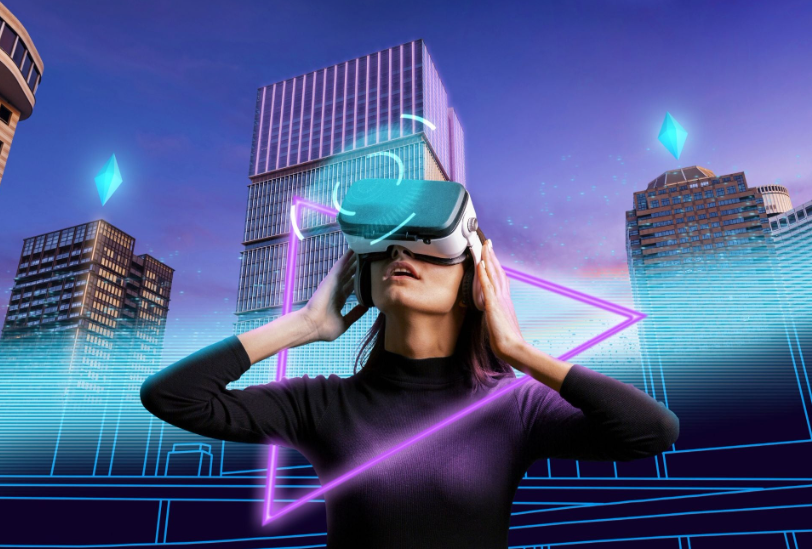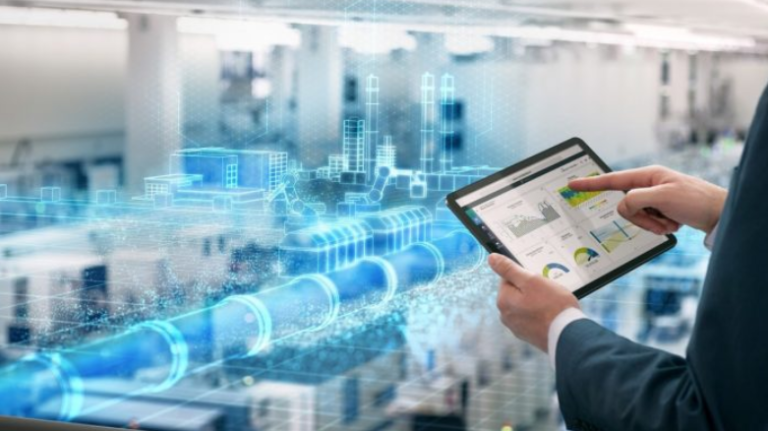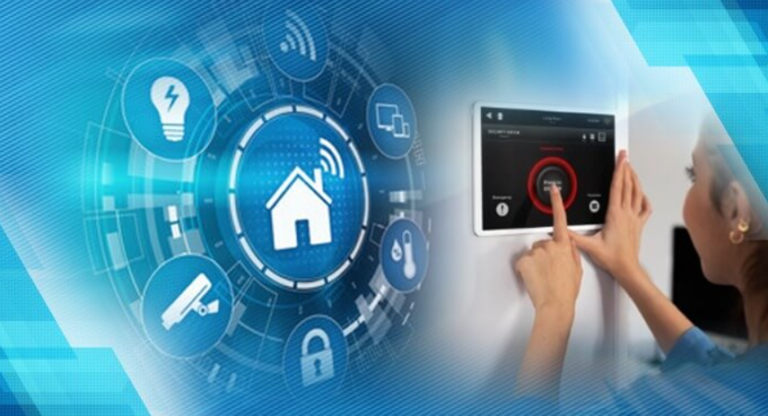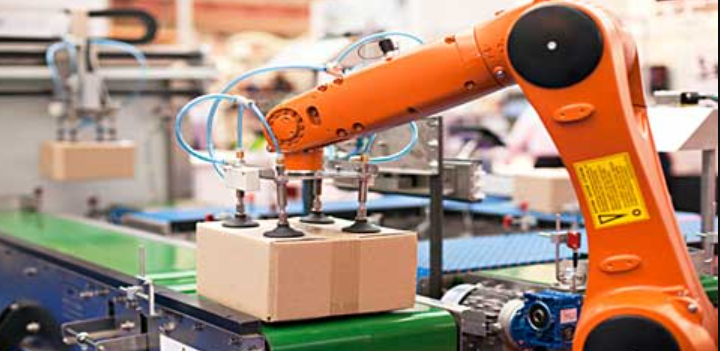The Future of Technology: Trends to Watch in 2025

Introduction to Technology Trends in 2025
The future of technology is unfolding faster than ever, shaping the way we live, work, and connect. As we approach 2025, the pace of innovation is accelerating, pushing the boundaries of what seemed possible just a few years ago. Staying updated on emerging technology trends is crucial for individuals and businesses eager to remain competitive and adapt to the digital landscape.
From artificial intelligence revolutionizing industries to the expansion of connectivity with 5G and beyond, 2025 promises a remarkable era of transformation. This article explores the most impactful technology trends to watch, providing insight into how they will shape our future.
Artificial Intelligence and Machine Learning Advancements
Artificial intelligence (AI) continues to be the powerhouse behind many technological breakthroughs. By 2025, AI-powered automation will have penetrated deeply into sectors such as manufacturing, healthcare, and finance, driving efficiency and innovation.
See also: How Artificial Intelligence is Changing Everyday Life
AI-Powered Automation in Industries
Automation is evolving from repetitive tasks to complex decision-making processes. AI systems will streamline operations, reduce errors, and enhance productivity, particularly in manufacturing lines and supply chain management.
AI Ethics and Regulation Developments
As AI grows smarter, concerns about ethical usage and privacy rise. Governments and organizations are developing frameworks to ensure responsible AI deployment, emphasizing transparency, accountability, and bias reduction.
AI in Personalized Healthcare
The healthcare sector will benefit immensely from AI advancements, offering personalized treatments and predictive diagnostics. AI algorithms will analyze patient data to recommend tailored therapies, improving outcomes and reducing costs.
The Rise of 5G and Beyond: Connectivity Revolution
The rollout of 5G networks has already started reshaping global communication, but by 2025, its full potential will be realized.
5G’s Impact on IoT and Smart Cities
Faster, low-latency connections will empower billions of Internet of Things (IoT) devices, creating smarter homes, cities, and industries. Enhanced data transfer will improve traffic management, energy efficiency, and public safety.
Emerging 6G Technologies and Potential
Though still in early development, 6G promises to revolutionize connectivity with even faster speeds and greater reliability, paving the way for futuristic applications such as holographic communication and advanced AI integration.
Quantum Computing: The Next Computing Frontier
Quantum computing represents a leap in computational power, solving problems beyond the reach of classical computers.
What Quantum Computing Means for Data Processing
By harnessing quantum bits (qubits), these computers can perform complex calculations exponentially faster, potentially transforming fields like cryptography, material science, and large-scale data analysis.
Real-World Applications Expected by 2025
While still emerging, quantum computing is expected to impact pharmaceutical research, financial modeling, and climate forecasting by offering unparalleled processing capabilities.
Extended Reality (XR): AR, VR, and Mixed Reality Growth
Extended Reality, including augmented reality (AR), virtual reality (VR), and mixed reality, is transforming experiences across industries.
XR in Education and Training
Immersive learning environments will provide hands-on training without risks, benefiting fields like medicine, engineering, and military education.
XR Transforming Entertainment and Social Interaction
From gaming to virtual meetups, XR technologies will create new ways to connect and entertain, blurring the line between physical and digital worlds.
Sustainable and Green Technologies
Sustainability is at the forefront of technology development in 2025, as innovations focus on reducing environmental impact.
Renewable Energy Tech Innovations
Advances in solar, wind, and energy storage technologies will enhance renewable energy adoption, making clean power more efficient and affordable.
Tech’s Role in Combating Climate Change
AI and IoT will monitor environmental conditions, optimize energy use, and aid in disaster prediction, supporting global efforts to mitigate climate change.
Blockchain Beyond Cryptocurrency
Blockchain technology is expanding far beyond Bitcoin and cryptocurrencies, influencing various sectors.
Blockchain in Supply Chain Management
Transparent and secure blockchain ledgers will improve traceability and reduce fraud in supply chains, enhancing product authenticity and efficiency.
Decentralized Finance (DeFi) and Secure Data Sharing
DeFi platforms will democratize financial services, while blockchain-based systems will secure sensitive data exchange, ensuring privacy and trustworthiness.
Autonomous Vehicles and Smart Transportation
Autonomous vehicles (AVs) are set to revolutionize transportation systems worldwide.
Advances in Self-Driving Cars
Enhanced sensors, AI, and 5G connectivity will improve the safety and reliability of AVs, leading to wider adoption in private and commercial sectors.
Integration of AI in Public Transport Systems
AI will optimize routes, schedules, and maintenance, making public transport more efficient, reducing congestion, and lowering carbon emissions.
Cybersecurity Trends for 2025
With growing digital connectivity, cybersecurity remains a top priority.
AI-Driven Security Systems
AI-powered tools will detect and respond to cyber threats faster and more accurately, reducing vulnerability to attacks.
Protecting Data Privacy in an Interconnected World
Stricter regulations and advanced encryption techniques will safeguard personal data as privacy concerns increase globally.
Biotechnology and Health Tech Innovations
Healthcare technologies are advancing rapidly, driven by breakthroughs in biology and computing.
Gene Editing Advancements (CRISPR)
Gene-editing tools like CRISPR will enable precise treatment of genetic disorders and enhance research into diseases.
Wearable Tech and Health Monitoring
Wearable devices will offer continuous health monitoring, alerting users and healthcare providers to potential issues early.
Edge Computing and Cloud Evolution
Data processing is moving closer to where data is generated.
Benefits of Edge Computing
Edge computing reduces latency, improves data security, and enables real-time processing crucial for IoT and autonomous systems.
Hybrid Cloud Systems and Their Future
Combining public and private clouds will offer businesses flexibility, scalability, and better control over data.
Robotics and Automation in Daily Life
Robots are increasingly present beyond factories.
Household Robotics
Robotic assistants will manage chores, enhancing convenience and accessibility for all ages.
Robotics in Manufacturing and Services
Collaborative robots (cobots) will work alongside humans, boosting productivity and safety.
The Role of Big Data and Analytics
Data is the new oil powering decision-making.
Predictive Analytics in Business Decision-Making
Businesses will leverage big data to anticipate trends, optimize operations, and improve customer experiences.
Data Privacy Challenges
Balancing data utility with privacy protections will be a critical focus as regulations evolve.
Challenges and Ethical Considerations in Future Tech
With innovation come challenges.
Job Displacement Concerns
Automation threatens certain jobs, necessitating workforce reskilling and policy support.
Ethical AI and Technology Governance
Ensuring technologies serve humanity responsibly requires global cooperation and ethical frameworks.
Preparing for the Future: How Individuals and Businesses Can Adapt
Adapting to fast-changing technology requires proactive efforts.
Lifelong Learning and Skill Development
Continuous education in digital skills is essential for career resilience.
Investing in Tech-Savvy Infrastructures
Businesses must adopt flexible, secure infrastructures to leverage emerging technologies effectively.
FAQs About Future Technology Trends in 2025
Q1: Which technology will have the biggest impact by 2025?
AI and 5G are expected to drive the most significant changes across industries.
Q2: Will autonomous vehicles be common by 2025?
While widespread use is emerging, full adoption may take longer due to regulatory and safety challenges.
Q3: How will 5G improve daily life?
5G will enable faster connectivity for smart devices, enhancing communication, entertainment, and services.
Q4: Is quantum computing ready for commercial use?
Quantum computing is in early stages but will gradually impact sectors needing heavy computation.
Q5: What is the role of blockchain beyond cryptocurrencies?
Blockchain will enhance transparency, security, and efficiency in various applications like supply chains and finance.
Q6: How can individuals prepare for future tech changes?
Embracing lifelong learning and digital literacy is key to adapting successfully.
Conclusion: Embracing the Future of Technology
The future of technology in 2025 is vibrant and full of promise, marked by rapid innovation and transformative trends. From AI-driven automation to quantum breakthroughs and sustainable innovations, these technologies will reshape every facet of our lives. Staying informed, ethical, and adaptable will be crucial as we navigate this exciting digital era. By embracing these trends, individuals and businesses can unlock new opportunities and contribute to a smarter, more connected world.





